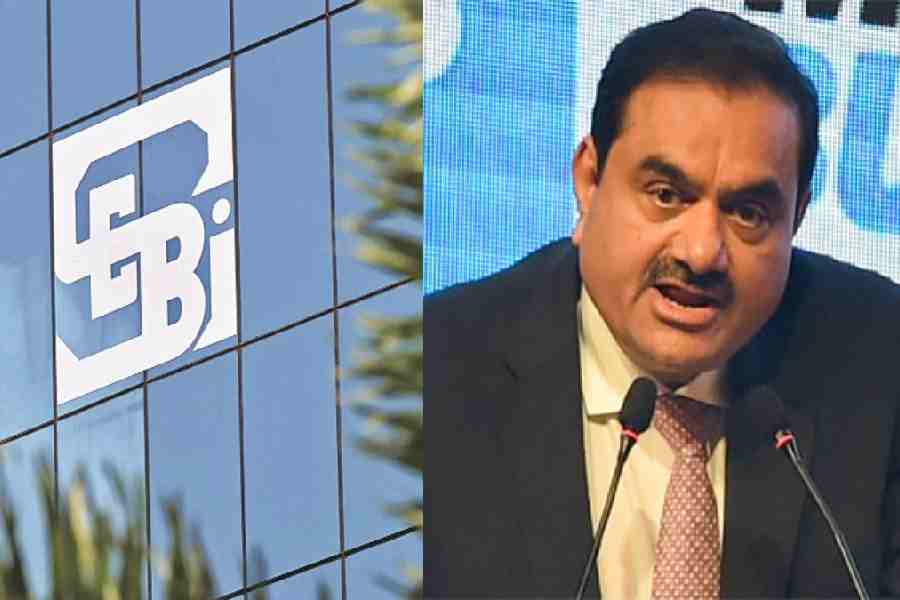The Securities and Exchange Board of India has come out with a 15-page wishy-washy “status report” on its investigation into the allegations of stock manipulation, violation of public float rules and dodgy related party transactions that Hindenburg Research levelled against the Adani group back in January.
The report did not reveal any finding on the 24 specific issues that the market regulator has been investigating since March under the directions of the Supreme Court.
The status report suggests that the regulator may be trying to buy time on a very controversial, politically charged subject that could snowball into a huge embarrassment for the Modi government in an election year.
The next hearing of the apex court is scheduled on August 29.
Sebi said it had concluded its investigation into 22 matters. The probe into two other issues has reached an interim stage.
The interim finding in one of the two pending issues has been approved by the competent authority. Sebi said it was waiting for information from certain unnamed external agencies and entities.
The regulator said it would decide its future course of action after it received the information and had the chance to evaluate it.
The investigation into the 24 issues have been categorised into four buckets.
The first pertains to the violation of Rule 19A of the Securities Contracts (Regulation) Rules, 1957. This rule prescribes that a listed company must have a minimum public float of 25 per cent. The Hindenburg report had claimed that entities close to the Adani group had bought into several group companies and had, therefore, breached the Sebi rule.
The Sebi report said many of the entities under investigation were located in global tax havens. “Establishing the economic interest shareholders of the 12 foreign portfolio investors (which have invested in the Adani group) remains a challenge,” the Sebi report said, adding that efforts were being made to gather details from five foreign jurisdictions.
The second bucket covers the allegations relating to manipulation of stock prices. There were two separate investigations it was carrying out here. The report said the regulator had conduced an analysis of trading by three separate FPI clusters in seven Adani group companies including group flagship Adani Enterprises and Adani Ports and SEZ Ltd.
The third bucket covers 13 separate investigations into undisclosed related party transactions relating to entities involved in mining operations in Australia, transactions relating to PMC Projects (India) Ltd — which Hindenburg labelled as the group’s “dummy firm” – and Adicorp Enterprises which had supposedly received loans worth Rs 620 crore from Adani group companies that they failed to disclose in their financial statements.
They also included transactions of group firms with Adani Infrastructure Management Services Ltd (AIMSL), transaction between Gardenia Trade and Investments Ltd (GTIL) and Adani Infra (India) Ltd (AIIL), and transactions relating to the award of a coal supply contract to an opaque Singaporean entity controlled by a former Adani group company director.
The last bucket covered allegations of insider trading in Adani Power, Ambuja Cements, and Adani Green Energy Ltd. The probe covered the period from June 2018 to January 2020.
The final report with respect to these charges has been completed and was approved by the competent authority on Thursday (August 24).











